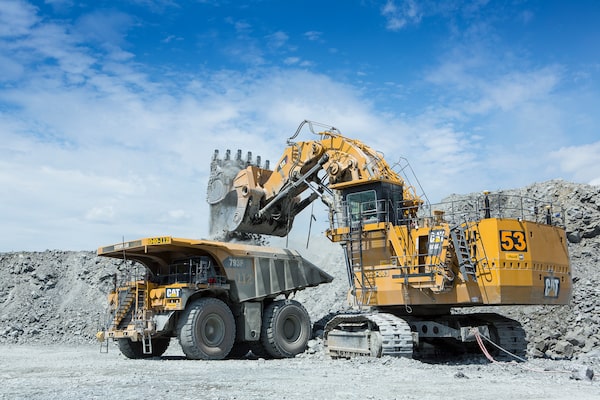
Toronto-based Agnico said on Tuesday it intends to pay 0.7935 of its shares for each Kirkland share.Mathieu Dupuis/Supplied
Agnico Eagle Mines Ltd. plans to acquire Kirkland Lake Gold Ltd. in an all-stock transaction that the companies say will create a “true Canadian mining champion,” but the deal garnered a lukewarm reception on Bay Street, with some investors questioning the strategic rationale.
Toronto-based Agnico said on Tuesday it intends to pay 0.7935 of its shares for each Kirkland share, or about 1 per cent higher than Kirkland’s average close over the 10-day period as of last Friday, essentially making it a nil-premium deal valued at more than $13-billion. Over the past few years, zero-premium deals have gained in popularity, with Barrick Gold Corp. acquiring Randgold Resources Ltd. in one such agreement for US$6-billion in 2018 that was widely lauded by shareholders.
This deal didn’t have as enthusiastic a reaction, partly because the news leaked out ahead of time, driving up shares in Kirkland. On Monday, the mining blog IKN reported that several big companies, including Barrick Gold, Newcrest Mining and Newmont Mining, were in contention to buy Kirkland. By the time the deal was announced on Tuesday, any hopes among Monday’s buyers of a premium had vanished, with Agnico’s offer valuing Kirkland at $50.06 a share, or more than $5 a share lower than its previous close. The price of shares in Kirkland fell by 7.8 per cent on the Toronto Stock Exchange on Tuesday, while Agnico’s stock fell by 1.2 per cent.
“It was unfortunate that that happened,” Kirkland’s chief executive officer, Tony Makuch, said in an interview, referring to the leak.
How Kirkland Lake morphed from gold sector rump to Agnico-Eagle’s prized asset
In the transaction, Agnico, already one of the industry’s most highly valued companies, will add three gold mines to its existing portfolio of nine. Agnico, which operates in Canada, Finland and Mexico, will take on assets in Canada and Australia. Agnico’s reserves will roughly double to 48 million ounces of gold. Its long-serving chief executive, Sean Boyd, will move to executive chair, with Mr. Makuch becoming the CEO of Agnico, if the deal closes.
Mr. Boyd and Mr. Makuch found themselves on the defensive in a conference call with analysts on Tuesday. RBC Dominion Securities analyst Josh Wolfson questioned why Kirkland, which has been a star performer over the past few years, would want to sell itself at this juncture. He also wondered why Agnico, which has historically shied away from large risky mergers and acquisitions, would take such a big swing.
“We haven’t increased the risk profile of this business. We’ve actually put two low-risk business together,” Mr. Boyd said in response, adding that Agnico would acquire only a small number of mines in the most mining-friendly jurisdictions in the world.
Mr. Makuch said Kirkland will grow faster if it is acquired by Agnico than if it remains a standalone. He pointed in particular to the potential future growth coming from Agnico’s LaRonde and Malartic mines in Quebec.
“Nobody’s trying to fix a problem here. We’re trying to create a better company,” Mr. Makuch said.
For Kirkland, if the deal is consummated, it would be the end of the road for what has been a spectacular success story over the past five years. The company has been one of the best performers because of its high-grade Fosterville gold mine in Australia, and its initially unpopular, but ultimately well-received, acquisition of Detour Gold Corp. in 2020.
Over the past few years, the global gold industry has consolidated rapidly with a number of large deals, including Barrick buying Randgold, and Newmont Corp. buying Goldcorp Inc. for US$10-billion. Investors have generally welcomed the deals with takeover premiums remaining low or non-existent.
But Scotia Capital Inc. analyst Ovais Habib said in a note to clients that the lack of a premium in the Agnico-Kirkland deal means competing bids are possible. “Interloper odds are higher than usual,” he wrote.
Investment banker Gordon Bogden, senior adviser at Origin Merchant Partners and a veteran of several mining company boards, said he expected that Kirkland Lake would have run a robust sales process “where all the obvious buyers would have been approached.”
“The possibility of another bid is there, but the probability is low,” said Mr. Bogden, who was a director at IAMGold and Royal Gold.
In the past, mining companies were criticized for takeovers in which the buyers overpay, then write down the value of mines they acquire. Mr. Bogden said over a decade-long span that began in 2005, research shows a flurry of takeovers in the gold industry destroyed US$130-billion in value for shareholders. As a result, Mr. Bogden said boards of companies making acquisitions are more receptive to mergers of equals such as Agnico Eagle’s union with Kirkland Lake, where no takeover premium is paid.
Joe Foster, a portfolio manager with New York-based asset management firm VanEck, which is a major shareholder in both Agnico and Kirkland, also thinks the chances of a higher bid for Kirkland are low, since the investors have generally not given premium deals a strong reception. “Other companies will be very reluctant to come in over the top,” he said.
The break fee payable to Agnico if a higher bidder swoops up Kirkland is $450-million, or 3.8 per cent of Kirkland’s market value. Industry advocacy group the Shareholders’ Gold Council recently criticized the gold industry for break fees that it says are far too high, saying they put off potential bidders and make the bidding process less competitive. The group is pushing for a maximum of 1 per cent to be the industry standard.
Your time is valuable. Have the Top Business Headlines newsletter conveniently delivered to your inbox in the morning or evening. Sign up today.